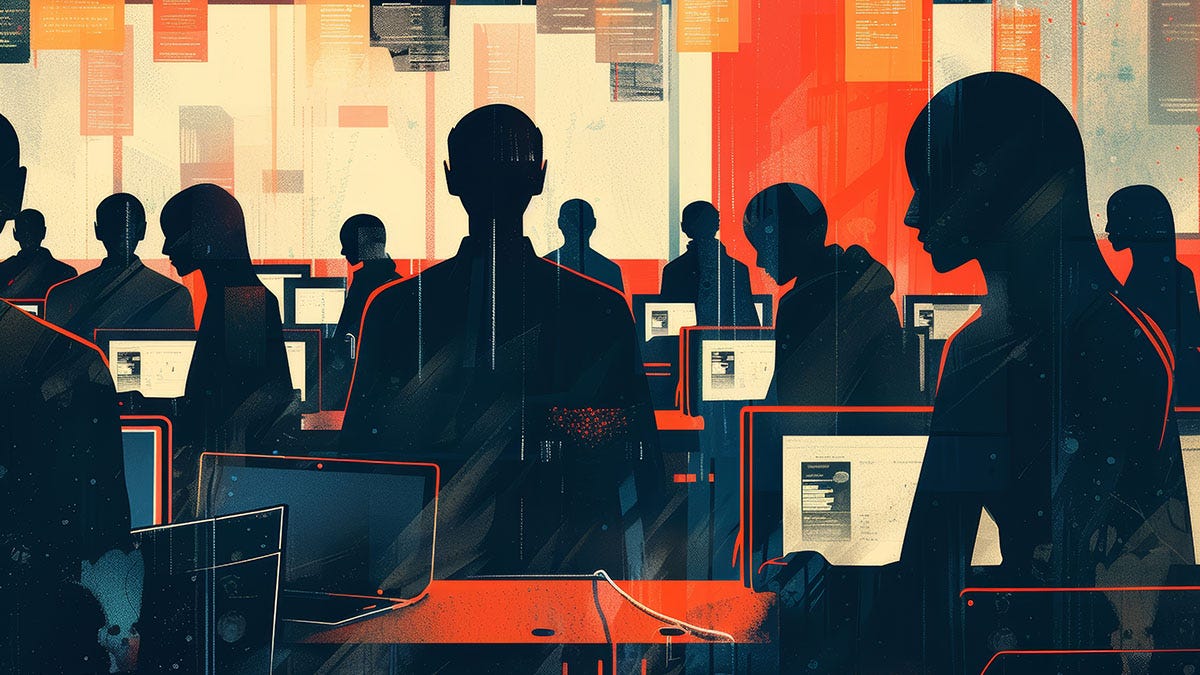why we're all becoming equally worthless
More and more, people in power see us as disposable things or "NPCs." And how AI is being pitched to them is making it worse.
If you’ve spent enough time talking to AI boosters, you may have noticed a disturbing pattern. While gushing about the benefits of high tech workplaces and predicting the utopian future of humanity enabled by AI, they seem entirely disinterested in how real, flesh and blood workers are treated. The worst offenders even call them NPCs, as in the non-player characters from video games capable of only limited interactions and existing merely as a utility to players.
You can see these attitudes in LinkedIn screeds and the corporate versions of pick-me posts on social media in which after praising ChatGPT or Claude, the posters will defend inhuman conditions for warehouse workers, loudly decry increasing minimum wages, dismiss unions and worker protections, sneer at remote workers as lazy bums who need to be dragged back into cubicles, and tell anyone struggling to make ends meet despite working full time to “quit whining because no one cares.”
It’s almost like they don’t see these workers as human or have any empathy for them. And a new study shows that it’s more than just a perception. People like this really do blur the line between machines and humans to very disturbing degrees, and the more a robot or an LLM model seems human-like to them, the more machine-like they start to see humans. Given these results, it’s little wonder that our billionaire tech oligarchs are so profoundly disconnected from the rest of humanity.
There isn’t a clear reason why this happens yet, and researchers don’t have any solid theories, just a hunch that it may have something to do with AI rattling self-perception and feelings of self-worth, which is also common in workers replaced by automation. More research will be needed, especially because the concern is that how AI is being deployed and used will lead to even more alarming levels of dehumanization.
If we end up seeing each other as more and more disposable and machine-like, it will profoundly affect employment, empathy, and ultimately laws and policies which keep eroding basic social services until none are left because why bother helping those no longer seen as, well, people.
While it may be tempting to just blame it all on AI and incessant tech hype, it’s really not that cut and dry. Workplaces of all types were treated like factories for the past century and the sentiment that workers matter less and less as individuals with skills to offer and can be treated more like a resource that can be replaced as needed, has been endemic in the C-suite long before LLMs.
So, rather than fostering dehumanization in the workplace and society, AI may simply be accelerating existing negative trends and cruel cultural norms. And nothing good has ever come from a society which sees large swaths of its population as disposable cogs in a greater machine meant to serve “bigger needs than the individual.”
See: Kim, H., McGill, A. L. (2025). AI-induced dehumanization. Journal of Consumer Psychology, 35, 363–381. DOI: 10.1002/jcpy.1441



